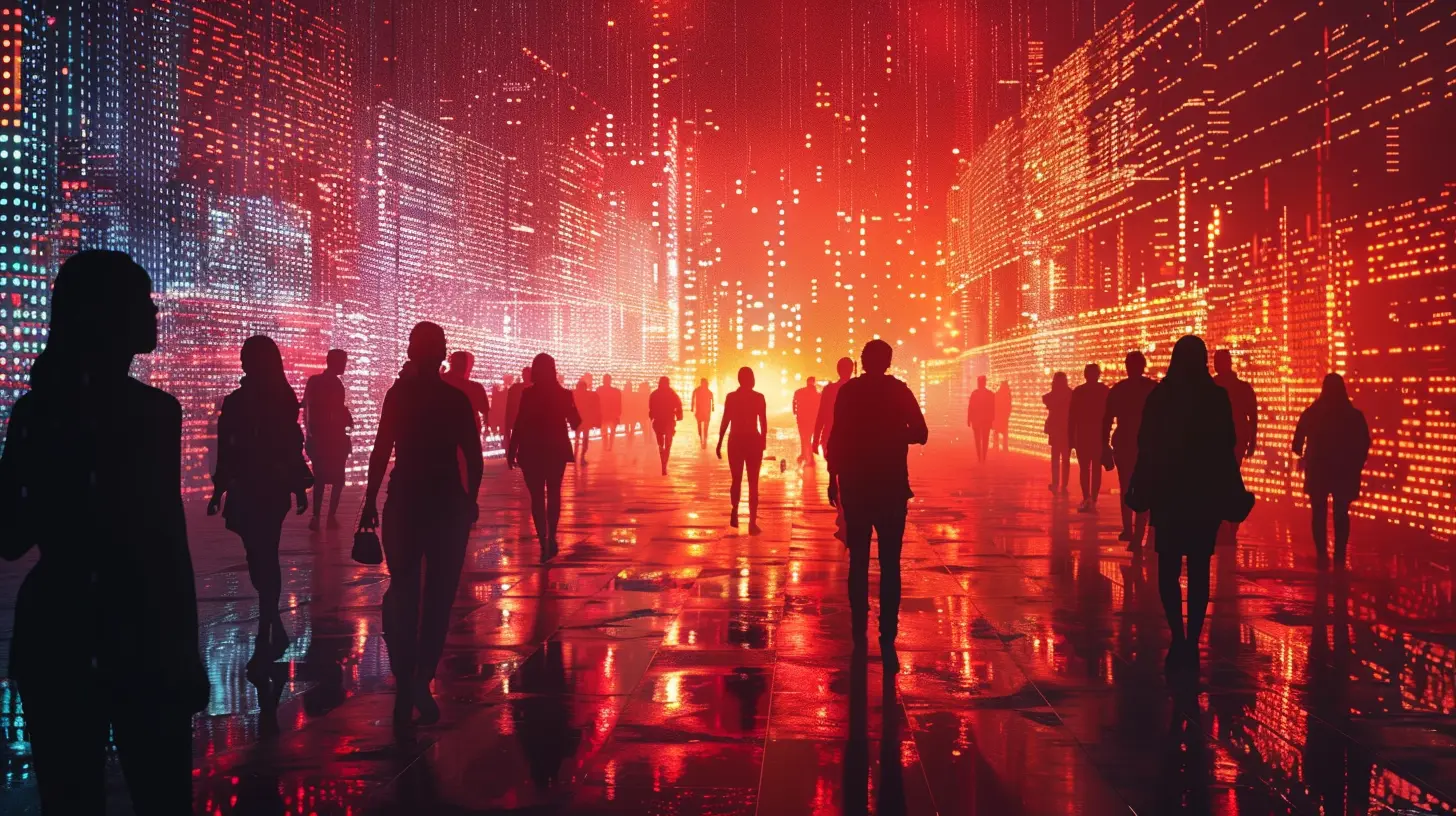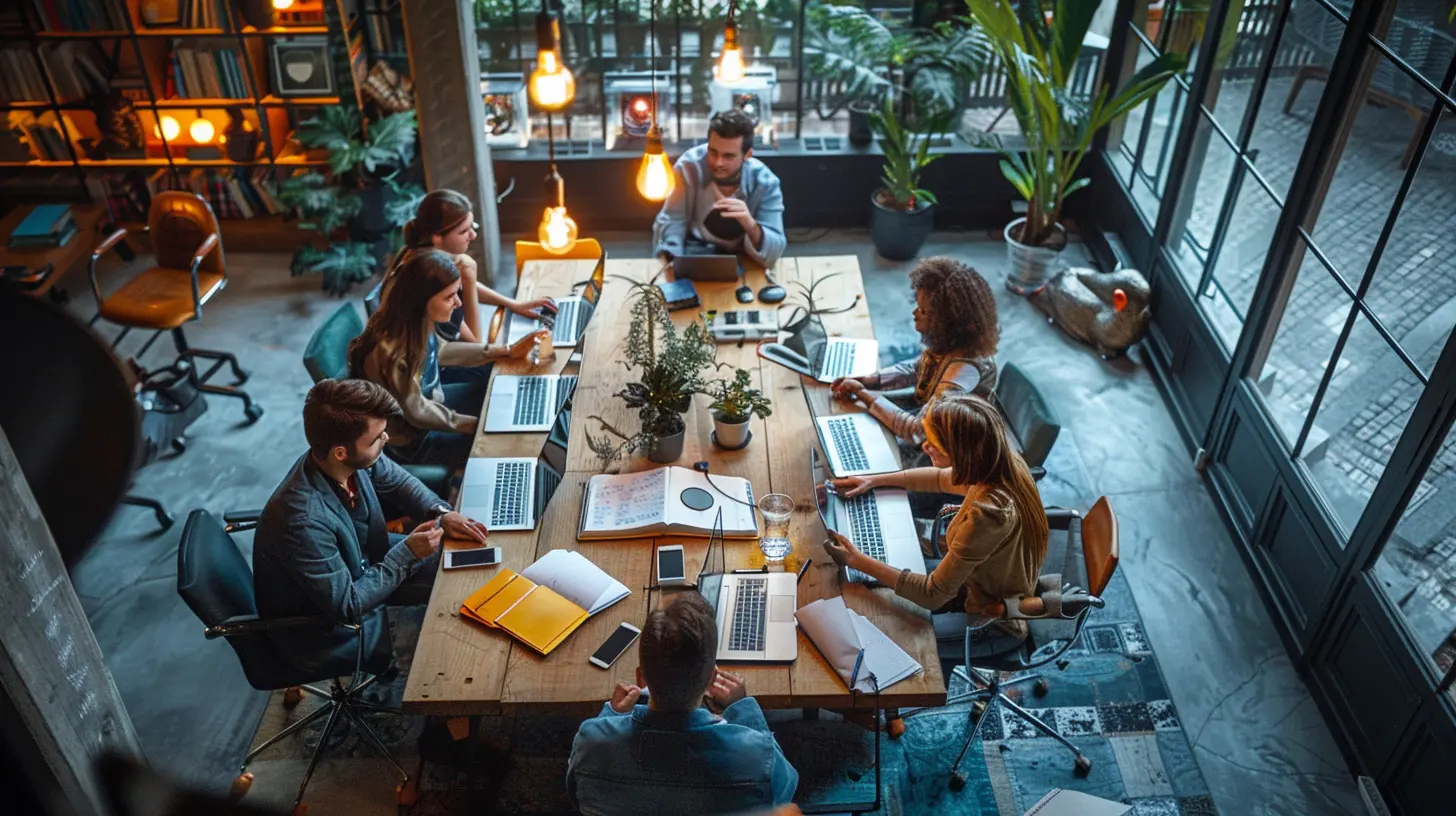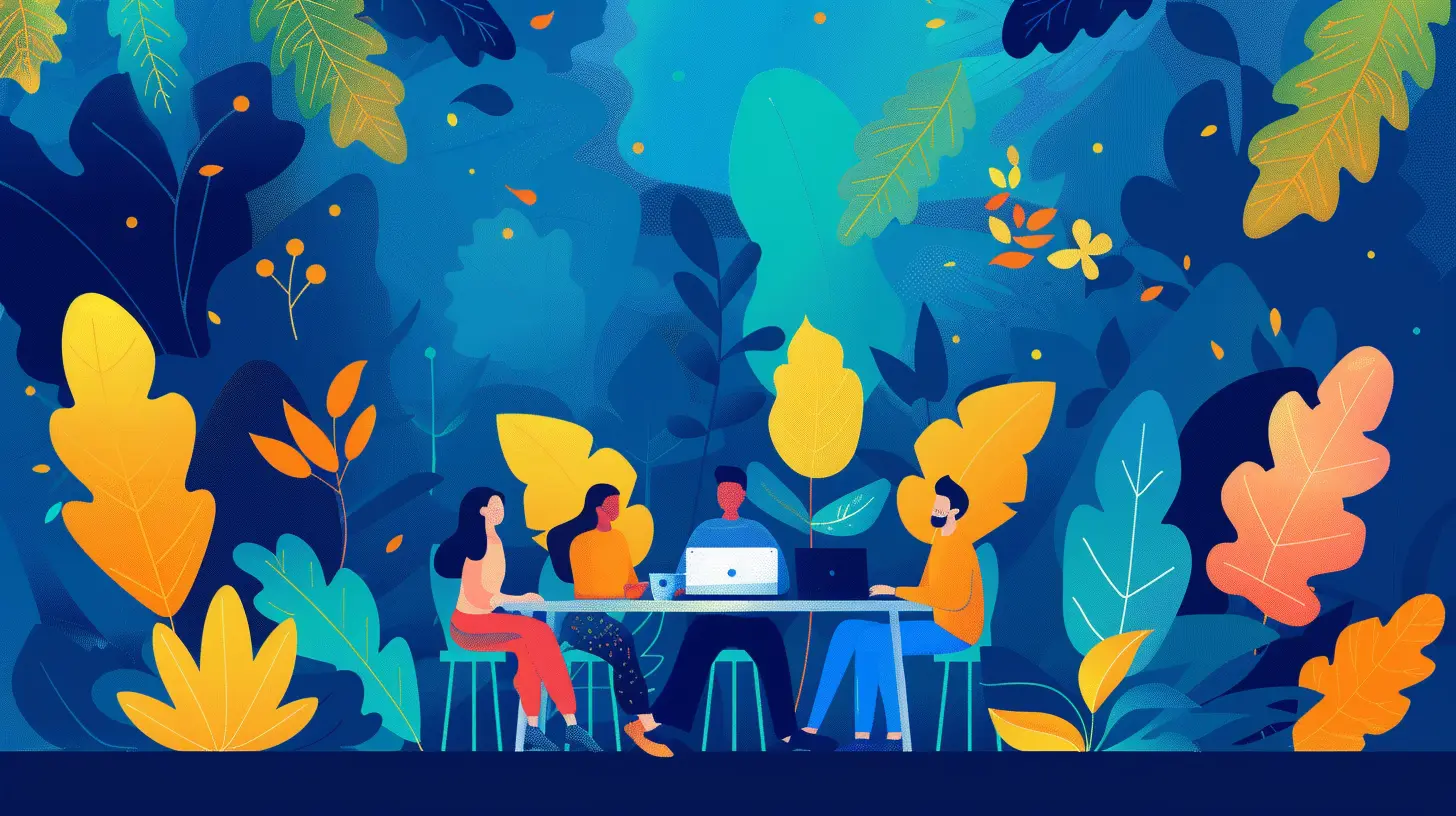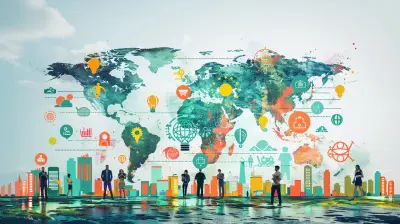20 March 2025
Have you ever wondered what it would be like to work alongside a robot or rely on artificial intelligence (AI) to make part of your workday a breeze? Well, grab your coffee (or tea), my friend, because we're stepping into a world where sci-fi meets the office cubicle.
The future of work isn’t about AI replacing humans. It's about something way cooler—humans and AI teaming up like Batman and Robin (or maybe Iron Man and Friday, for my Marvel fans out there). Alright, let’s dive into what this collaboration looks like and why it should have you feeling optimistic about what lies ahead.
What Is Human-AI Collaboration Anyway?
Okay, first things first—what does "Human-AI Collaboration" even mean? Think of it like working with a super-smart assistant who doesn't sleep, doesn't complain, and (thankfully) doesn’t steal your sandwiches from the office fridge. AI handles repetitive, data-heavy tasks, leaving humans free to focus on creative, strategic, and people-centered work. It's the ultimate tag team!Picture this: You’ve got a spreadsheet with a million rows of data to analyze. Instead of spending hours poring over it, you let AI do the heavy lifting. Meanwhile, you get to shine by interpreting the results, making decisions, and, dare I say, actually enjoying your job. Sounds dreamy, right?
Why Human-AI Collaboration Matters Right Now
If you've been paying attention, you'd know AI isn't just lurking in sci-fi movies anymore—it’s everywhere. From chatbots that solve customer queries faster than you can say "hold music" to algorithms that help businesses predict trends like a digital crystal ball, AI is already reshaping industries.But here's the kicker: AI isn’t replacing jobs en masse (cue a collective sigh of relief). Instead, it’s transforming them. Think about it—AI can crunch numbers or manage schedules, but it can’t replicate empathy, creativity, or the human touch. And that’s where we come in.
Automation Anxiety: Legit Concern or Overblown Fear?
Let’s address the elephant in the room. Yes, some people are worried AI will "steal" jobs. It’s true that as automation ramps up, certain roles will change or even disappear. But don’t panic just yet! Remember when calculators became a thing? Did accountants suddenly vanish? Nope. They just got cooler tools to work with.In reality, for every job that automation replaces, it creates a new one—often jobs that are more exciting, less mundane, and higher-paying. I mean, someone’s gotta program those AI systems, right?
So instead of thinking "robots are coming for my job," start thinking, "how can I work with them?" Because trust me, this collaboration has job security written all over it.
How Businesses Are Already Embracing Human-AI Collaboration
Okay, let’s talk about the ways businesses are already leveraging AI to change the game. Spoiler alert: It’s not just about making things faster—it’s about making things better. Here’s how:#
1. Customer Service: The AI Frontline
Ever gotten instant help from a chatbot? That’s AI in action! Businesses are using AI-powered systems to answer FAQs, track orders, and even solve complaints. AI handles the grunt work while human agents step in for complex or emotional issues. It’s like a tag team that ensures the customer is always cared for—but with way fewer "press 1 to continue" moments.2. Marketing: Smarter Strategies
AI doesn’t just analyze customer behavior—it practically reads minds (not literally, don’t worry). It predicts trends, personalizes emails, and even suggests the best times to post on social media. Meanwhile, marketers focus on crafting authentic, creative messages that resonate with audiences. Humans bring the heart; AI brings the brain. It’s a match made in heaven.3. Recruitment: Finding the Perfect Fit
Sifting through dozens (or hundreds) of resumes is a nightmare for hiring managers, but AI can make it a dream. It screens candidates, matches skills to job requirements, and even predicts which applicants are most likely to thrive. This gives HR teams more time to do what they do best—connecting with people.4. Healthcare: Saving Lives Together
In medicine, AI assists doctors by analyzing patient data and suggesting diagnoses or treatment plans. But here’s the cool part—it doesn’t replace doctors. It supercharges them. Doctors use AI insights as a starting point, then apply their expertise to make critical, life-saving decisions.5. Supply Chain: Efficiency Redefined
AI in logistics is like having a GPS on steroids. It predicts demand, identifies bottlenecks, and optimizes delivery routes. Humans, on the other hand, handle strategic planning, supplier relationships, and course corrections when things go sideways (because, well, life happens).What Does This Mean for You? (Yes, You!)
Now that you know the "how," let’s get personal. What does human-AI collaboration mean for your career? Whether you’re a small business owner, an employee, or just someone curious about the future, there’s something in it for everyone.Embrace the Shift, Don't Fight It
Here’s the deal: Technology isn’t slowing down, and neither should you. Rather than fearing change, learn to dance with it. Upskilling (fancy word for learning new skills) is your secret weapon. Want to future-proof your career? Get comfy with AI tools in your field.Focus on What Makes You, You
Repeat after me: "AI can’t replace me." Why? Because, unlike AI, you have creativity, intuition, and emotional intelligence—qualities that are absolutely irreplaceable. Lean into roles that emphasize problem-solving, leadership, and collaboration. Trust me, we humans still have a few tricks up our sleeves.Think of AI as Your Work BFF
Sure, AI might not bring donuts to the office, but it’s still a pretty stellar teammate. Treat it as your ally, not your enemy. The more you understand how to use it, the more you’ll thrive. Plus, let’s be honest—who doesn’t want an assistant that never complains about overtime?Challenges Ahead (Because Nothing’s Perfect)
Okay, so human-AI collaboration sounds amazing, but it’s not all rainbows and unicorns. There are a few bumps in the road we need to be ready for.1. Bias in AI: Remember, AI learns from data—and if that data is biased, the AI will be too. For example, recruitment systems might inadvertently favor certain groups over others. That’s why humans play a crucial role in spotting and fixing these issues.
2. Privacy Concerns: With AI comes a TON of data collection. Who’s keeping this data safe? Are companies transparent about how they’re using it? These are questions we’ll need to keep asking.
3. The Learning Curve: Not everyone is tech-savvy, and that’s okay. But to make human-AI collaboration work, businesses will need to invest in training and education so no one gets left behind. Because let’s face it—teaching grandma how to use a chatbot might take a minute.
The Future Looks Bright… If We Work Together
So, here’s the bottom line: The future of work isn’t about AI taking over. It’s about humans and AI teaming up to create something better. From automating boring tasks (hallelujah!) to empowering us to tackle big, meaningful problems, this collaboration opens the door to endless possibilities.But here's the deal—we’ve gotta embrace it. Learn the tools, adapt to change, and lean into the skills that make us human. Because when humans and AI work hand in hand, it’s not just the future of work—it’s the future of awesome.









Emory McCallum
Great insights! The synergy between human creativity and AI efficiency is the future of work. Embracing this collaboration can truly transform business landscapes. Exciting times ahead!
April 2, 2025 at 12:47 PM